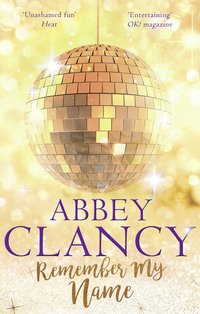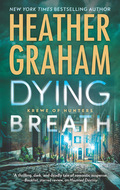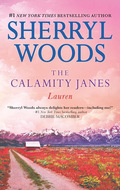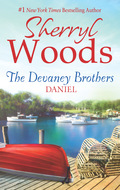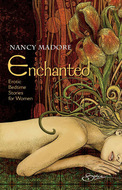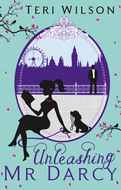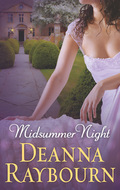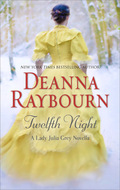Kitap dosya olarak indirilemez ancak uygulamamız üzerinden veya online olarak web sitemizden okunabilir.
Kitabı oku: «Remember My Name»
Liverpool-born ABBEY CLANCY is one of the UK’s most in demand models. She successfully combines being a wife and mother with her career as a presenter and model. She is a UK brand ambassador for many top brands including Matalan, Reebok and Avon. Abbey is married to Premiership footballer Peter Crouch and has two small daughters.
Remember My Name is her debut novel.

For Neale – gone but never forgotten.
I love you.
Table of Contents
Cover
About the Author
Title Page
Dedication
Prologue
Chapter 1
Chapter 2
Chapter 3
Chapter 4
Chapter 5
Chapter 6
Chapter 7
Chapter 8
Chapter 9
Chapter 10
Chapter 11
Chapter 12
Chapter 13
Chapter 14
Chapter 15
Chapter 16
Chapter 17
Chapter 18
Chapter 19
Chapter 20
Chapter 21
Chapter 22
Chapter 23
Chapter 24
Chapter 25
Chapter 26
Chapter 27
Chapter 28
Chapter 29
Chapter 30
Chapter 31
Chapter 32
Chapter 33
Chapter 34
Chapter 35
Chapter 36
Chapter 37
Epilogue
Copyright
Prologue
Liverpool, a few years ago …
Jess could feel the heat of the spotlight; the glare of the multi-coloured strobe flitting over her face as it criss-crossed the stage. She could feel the sweat oozing its way through her make-up, the strain on her lungs as she recovered from that last note. She was blinded by the dazzling glow, deafened by the sound of applause hammering in time to her own frenzied heart. Her legs were weak from dancing, her throat was sore from singing, her stomach was cramping with effort and nausea, and she felt like she might collapse at any second.
It was, quite frankly, the best moment of her entire life.
She blinked her eyelids a few times to try and get rid of the droplets of sweat that had gathered on her long lashes, and stared out at the audience. She knew they were there—she could hear them, feel them, and, thanks to the hot dogs that had been served at the interval, even smell them—but the spotlight turned them into a mass of dark blobs. Dark blobs that were all standing up, shouting and cheering and clapping. Even people that weren’t related to her by blood were joining in—although she could definitely hear her dad yelling louder than everyone else. All she could see was the dark outline of bodies, silhouetted hands waving in the air.
All those people. Cheering. For her.
Panting, exhausted, on the biggest high she’d ever known, a wide smile cracked her face in two. She’d done it. She’d played the lead role in the biggest show of the school year, and she’d played it well. So well that the whole place was on its feet.
So what if she passed out afterwards? And who cared if the fright wig she was wearing tore her own hair out in clumps when it was removed? And what did it matter that she might have broken her big toe during that last routine? It was all worth it.
All the hours of rehearsal; the time away from her friends and family; the pain and the dehydration and the frustration of getting it wrong time after time. It was just … worth it. This was where she was born to be, and she’d never been happier.
Jess sensed the rest of the cast running out to be with her; grinned as Ruby grabbed one of her hands and Adam grabbed her other, and raised them up in victory before they performed their bow. The others were there too: the dancers and singers from the chorus; and the girl who’d worked on the costumes; the woodwork team who’d built the set; and Mr Carlisle, the teacher who’d produced it.
Everyone apart from Daniel Wells, that is. Daniel, who’d not only written the story, but also scored the songs, designed the stage, and organised the lighting—he, Jess knew, would still be tucked away in his tech booth where he seemed to live. Daniel hated the spotlight as much as she loved it.
Finally, eventually, after several more bows, the curtains swished closed in front of them. The lights dimmed. The roar of the crowd subsided.
It was over—and Jess felt a momentary burst of panic as she wondered what she’d do now. Now she was no longer playing a role—now she was back to being plain old Jess Malone, instead of the spunky, sparky heroine of Daniel’s show. Now she had to go back to reality. It was going to be a huge downer, she knew.
She didn’t have time for the thoughts to settle, which was probably a good thing. Ruby shook her out of it by hugging her so hard she thought her lungs might pop out of her mouth.
‘Come on, Jess!’ she said, finally letting her go; laughing with sheer joy. ‘We’ve got a party to go to! All back to mine … my mum’s been the offie and got the drinks in, your lot are coming as well. They said the whole street is going to party like it’s 1999.’
Ruby’s lipstick had smeared, leaving a bright red slug-trail across her cheek, and one eyelash was falling off, spider-legging its way down her face. Jess reached out and used her finger to wipe away the lippie, and stuck the lash back into place. She was always doing repair jobs on Ruby—not just for the make-up, but for the broken hearts, the hangovers, and the dog-ate-my-homework disasters that seemed to make up the whole of her best mate’s life.
‘There,’ she said. ‘Now you’re perfect. Give me a minute. I’ll get my stuff and see you outside.’
‘Yeah, right. You’re off to see Danny McDumbass, aren’t you?’
‘Don’t call him that—he wrote this whole thing. And he’s not dumb.’
‘Maybe he’s not dumb. But he is an ass … anyway, catch ya later!’
Ruby ran away, heading to the back of the stage. Jess heard her screeching as she went, and laughed at her antics. So Ruby didn’t appreciate Daniel—that didn’t exactly put her in the minority.
She sighed, smoothed down the curls of her fright wig, and took one more quiet moment to recall exactly how she’d felt when she heard that applause. It had been … perfect.
Jess could hear the sounds of the others celebrating, and the shuffling feet of the audience leaving the college auditorium, and knew it was time for her to leave too, even if she didn’t want to. Maybe she could just get a sleeping bag and curl up in a corner … except, no. She couldn’t. It was time to party—and her mum and dad would be first up on the table doing the Macarena, which was always a sight to see.
First, though, she needed to say goodbye to Daniel, and try and persuade him to come to the party with them. She knew he wouldn’t, but she had to try. It was part of their relationship—her constant battle to drag him into the real world, and his constant refusal to come along. Strange as it seemed, he preferred playing ‘World of Warcraft’ and building computers from scratch to getting hammered on vodka and Red Bull and copping off with people.
Daniel lived next door to her on their quiet terraced street—his was the blue door and hers was the red, which reflected the footballing loyalties of the inhabitants. It was always good natured until derby day, when the two families diplomatically avoided each other as much as they could until the result came through. Then all bets were off. The walls were thin enough that as each team scored, you could hear the other family cheering next door.
She’d known him since they were three, and they’d gone all the way through primary school and junior school and high school together, ending up at the same college. He was what her little brother Luke called ‘a bit of a weirdo’, and what her mum Michelle called ‘an intellectual’. To Jess, he was just Daniel—the kid that nobody seemed to quite get except her.
She made her way to the tech booth and found him hiding away there, as she knew she would. They were eighteen now and, whereas Jess had blossomed—losing the cute baby fat that her mum loved showing off in embarrassing photos, gaining curves in all the right places, and blooming from gap-toothed schoolgirl into a young woman—Daniel hadn’t. He was still on the short side, smaller than Jess’s five eight at least, which would have been fine if not for the fact that he also had the body weight of a six footer.
He took up most of the space in the booth, his too-long dark blond hair tucked behind his ears, his blue eyes serious and intent as he flicked switches and stashed discs. He always looked serious, Jess thought, even at moments like this, when he should be walking on the same cloud of happiness as the rest of them.
He looked up as she approached, and gave her a small smile.
‘No,’ he said, straight away.
‘What do you mean, no?’ she replied. ‘I haven’t even asked you anything yet!’
‘No, I’m not coming to the party at Ruby’s.’
‘Oh. So you’re just going to go home and listen to suicide songs and be a miserable get on your own, are you?’ she asked.
‘Yes, that’s exactly the plan, so don’t try and persuade me. Anyway—you were great tonight. I knew you would be, Jessy.’
Warmth spread through her at his words, and she couldn’t help but grin like an idiot.
‘I was, wasn’t I? But it’s all down to you, writing that part for me.’
‘Well, who else would I write it for?’ he asked. ‘A cheerleader who saves the world from alien invasion?’ Daniel was packing cables and sockets into a bag as he spoke. ‘You were the only one who could pull it off.’
‘You just wanted to laugh at me in this costume,’ she said, gesturing to the neon-pink outfit that had been threatening to bring her out in a rash ever since she first wore it.
Daniel looked her up and down, then quickly turned away. It was hard to tell in the dim lights, but Jess could have sworn he was blushing for some reason.
‘I only laugh at you when you’re funny—which is most of the time, whether you mean to be or not. But seriously—your voice was amazing. You’re going to be a big star one day, Jessy.’
She watched him as he bustled around, confused by her emotions. On the one hand she was sad that she couldn’t reach him—drag him out of his shell long enough for everyone else to see what she saw—but on the other hand … a star. Even the word made her go a bit cross-eyed with excitement.
Daniel thought she’d be a star. That she could do this—every night of her life if she wanted to—sing and dance and entertain and drive round in a limo and drink Cristal. Buy her mum and dad a posh house in Formby, have enough money so he could stop driving taxis, and Mum could say farewell to her job in Tesco … a star.
‘You really think so?’ she asked, suddenly not feeling quite so sure of herself. Now she was here, out of the spotlight, away from the crowd, it didn’t seem entirely possible.
Daniel stopped what he was doing and turned to face her, his expression firm and insistent.
‘Yes. You, Jess Malone, have more X factor than there is on every talent show on TV. You sing like an angel, you dance like a pro, and you’re … well, you’re not ugly. Some might even say you’re beautiful. The world’s your stage, Jess—and you’re the star of the show.’
Chapter 1
Cheshire—a few years later …
‘And here she is—the star of the show! Give her a big hand, ladies and gents, boys and girls … it’s Elsa from Frozen!’
I stood behind the Princess Mobile, shivering from the cold, cringing at Ruby’s over-the-top announcement. There was static on the microphone as she spoke, and every word came out distorted and fuzzy and painful to the ears. It was yet another thing we had to get fixed.
The Princess Mobile itself was looking as if it needed a day at a spa, the lettering peeling off and one wing mirror held on entirely by tape. Pink tape, though—we had a brand to protect. It was meant to look like a beautiful fairy-tale carriage on wheels—but it looked more like a clapped-out van designed to carry drunk women round Mathew Street on their hen night.
My costume was in need of some TLC as well. It was our most popular range—the kids still couldn’t get enough of Elsa—and I practically lived in this disgusting blue polyester nightmare. One of Ruby’s mates had run up all our costumes for us, and, like the Princess Mobile, they’d been all right to start off with.
Now, after two solid years of bringing Disney-fied joy into the lives of kids all across the north west of England (and occasionally, North Wales, which made us practically global), it was a bit frayed around the edges.
Much like myself, I thought, as I tottered forward to greet the crowds. I’d have preferred not to totter, but the grass was really soggy after three solid days of rain, and my white high heels kept sinking into the mud as I walked. It wasn’t raining right then, but it was probably only a matter of time before it started lashing it down—it was one of those brilliant British summers that make you fantasise about winning the Euromillions and buying a villa in the Bahamas.
I emerged from behind the Princess Mobile as elegantly as I could, bearing in mind the wind was blowing my blonde Elsa wig so hard the plait kept whacking me in the face. It was pretty heavy as well—I could end up with a broken nose at any moment. I kept my smile in place and my mouth firmly shut—it would be bad for business if Elsa suddenly started effing and blinding in front of the munchkins.
There were about thirty kids at this party, which was being held in the garden of a very nice house in what the telly always calls ‘leafy Cheshire’. The posh bit—not Warrington. The bit where footballers and business tycoons lived, in homes with cinema rooms and security gates and stables for their ponies. Which meant that I probably shouldn’t call it a garden—I should call it ‘the grounds’, as you could fit the whole of Bootle into it if you tried.
The kids obviously didn’t realise they were supposed to be posh, and were behaving like absolute little shits. They’d fought during the party games, stolen each other’s pass-the-parcel prizes, and pushed each other off their seats in musical chairs so hard that one of them had already been taken to A&E.
The birthday girl herself was called Jocelyn. She was five years old, and already a total diva nightmare. Don’t get me wrong, I don’t believe in hitting kids—usually—but I’d make an exception for Jocelyn. She was wearing an Elsa costume herself, though hers looked a lot more classy than mine to be honest—more velvet and satin than polyester and rayon. And her hair was real—a gorgeous, thick, blonde fishtail plait that draped over her tiny shoulders oh so perfectly.
That was where the perfection ended. She’d been glaring at me and Ruby ever since we arrived, following us around as we set up, telling us we were doing everything wrong, demanding she won every party game, and generally being a miniature bitch. Her parents just smiled and laughed, as though she was being especially cute or entertaining. Obviously, money didn’t buy parenting skills—my mum and dad would have killed me if I’d been that rude to anyone.
The grown-ups were all sitting around at white-clothed tables, sipping expensive-looking wine, and wrapped up in Barbour jackets and posh pashminas. The women were perfectly made up and a bit Botox-y, and the men were tanned and fit and looked like they went skiing every winter.
It was very different from the world I usually lived in—a tiny two-bedroomed flat ‘near the city centre’ (that was what the letting agent said—in reality it was Dingle) that I shared with Ruby. Ruby and, more and more often, her boyfriend Keith. Keith was fifteen years older than Ruby, carried a selfie stick around wherever he went, and, in my opinion, was a huge sleazebag—but that was one of those opinions you have to keep to yourself. Until she dumped him, and then I could really let rip.
Still, at least our flat wasn’t inhabited by Jocelyn, who was staring at me with really evil eyes as I made my way—heels sinking into the mud—towards the central area we’d designated as our performance spot.
I tried to ignore her as I smiled and took my position, feeling the first drops of rain land on my face as I did. She made it pretty hard, though, by pointing at me and yelling: ‘That’s not the real Elsa! That’s just the silly woman who gave out the jelly!’
Big laughs from the mums and dads at that one. Screeches from the other kids. And torrential rain now pouring down on my head as if God was emptying a bucket all over me.
It was all right for them. They were all sheltered beneath a huge gazebo, and even though it was billowing in the wind, it was keeping them dry, the rain draining off in rivulets down the side and onto the soggy grass.
Ruby was under there as well, and I felt a moment of pure hatred for her as she gave me a thumbs up, and a huge fake grin. At least I thought it was fake—maybe she was just really happy to see me out there on my own, soaking wet, blue polyester frock clinging to my skin, being heckled by a group of five-year-old sadists as my Elsa braid repeatedly thumped me across the forehead.
I switched on the handheld microphone and waited until Ruby flicked on the backing track. She’d pulled the equipment under the gazebo with her as well, which was a pretty sensible idea. Otherwise she might get electrocuted. This way, I thought, looking at the snow machine and the wires stretching out to an extension plug, at least only one of us would get electrocuted. Me.
I glanced up at the heavens as the now intensely familiar opening chords of ‘Let It Go’ kicked in. The sky was completely black now, almost as though there’d been a total eclipse of the sun. I said a quick prayer to the Patron Saint of Children’s Party Entertainers—and if there isn’t one, there really should be—and asked very nicely if any lightning that was planned could hold off for the next ten minutes at least. I wasn’t at all keen on that electrocution thing.
I closed my eyes, took a deep breath, and … let it go. However wet I was, however tired I was, however itchy that dress was, I loved to sing. Even this, which I’d done over and over and over again for so long, still had the power to lift my spirits.
It was a beautiful song, and an absolute dream to perform. I tried to avoid Jocelyn’s gaze—I suspected her eyes were glowing red like an evil child from a horror film by now—and threw myself into it heart and soul. That’s what I was paid to do, and, more importantly, that’s what I loved doing.
Things might not have worked out quite the way I’d hoped when I was eighteen, but at least I had managed to make a living from singing—assuming by ‘living’, you meant a steady diet of Ramen noodles, no landline, and sneaking vodka into pubs in my handbag to add to my coke on nights out.
Still, I was doing what I loved. What I still thought I was born to do—and at the ripe old age of twenty-two, I wasn’t quite ready to give up on my dreams just yet.
Plus, if I kept my eyes screwed closed, and ignored the rain, and blocked out the sounds of the kids screaming at each other, I could still lose myself in the music; lose myself in the joy of the song … and imagine everything was very different. That I wasn’t standing here being mocked by a group of minipsychos and their boozed-up parents. That I was on my own stage, doing my own concert, for my own adoring audience …
As I sang out the last few lines, my fantasy was rudely interrupted by what felt like a giant blast of washing-up liquid to the face. It sloshed up my nose, choked my mouth, and stung my eyeballs. I yelled and tried to back away from the liquid punch in the gob; sadly, my heels were still firmly embedded in the muddy ground and, although the rest of me backed away, my feet didn’t.
As a result, I landed on my blue-polyester-clad backside, squelching around in an ever-expanding puddle of dirt, grass, and rainwater. I’d dropped the mike, and was now screaming as the snow machine continued to spew at me.
It was supposed to create a beautiful fairy-tale effect as I finished the song—one that the children usually loved. We filled the special tank with what was mysteriously called Snow Fluid, and when Ruby pressed the button, it gently showered me with foamy snowflakes. It got oohs and aahs every time we used it.
This time, though, something had gone badly wrong. I don’t know whether it had malfunctioned, or Ruby had pressed some magical and previously unused setting, but the stuff had blasted me full in the face like one of those water cannons police use in riots.
As I lay there, drenched to the skin, unable to get up again because the mud was now of a level that hippos would enjoy wallowing in, I finally heard it. The sound that usually made me happy.
Bloody applause.
